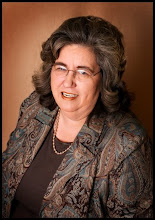The Individual Education Plan (“IEP”) process involves a team which includes parents, teachers, various specialists (for example: speech therapist, occupational therapist, Autism specialist, etc.) and others involved with the child. Each member has their own prospective on what is best for the child. Disagreements abound. In fact, I recently saw an advertisement for a coffee mug which said “I survived an IEP”.
While writing my book,
Parenting Your Complex Child, I did an internet search on advocacy. I was surprised at the time of some of the websites. It fit with the email I get from visitors to my website wherein parents described themselves as powerful advocates because they could “kick butt” and “sue the” B’s.
This is anger is probably brought on by the disrespect parents so often receive and their frustration at trying to get an appropriate plan for their child’s education. I call it the “dumb parent treatment”. Parents are told they are the leaders of their child’s team or they know their child best. However, once they disagree with a goal or method used for their child’s education, the subtle or not so subtle message “you are only the dumb parent, how dare you question a professional” is communicated through innuendo or body language. I have been told that I am not objective because I am Mom.
When conflict arises in the IEP process the victim is the child. The focus changes to dealing with the conflict. It is very difficult to achieve appropriate resolution for the child’s benefit in that type of environment.
Under the Individuals with Disabilities Education Act (“IDEA”) if parents disagree with the IEP they are able to request an “impartial due process hearing.” The U.S. Supreme Court just issued an opinion that the “burden of proof” is on the party seeking relief. This can be a school district but is most often the parents.
In reviewing the Supreme Court’s opinion, I found it interesting that it described two elements in “burden of proof”; the burden of persuasion and the burden of production (to provide evidence). The opinion stated that these cases only concern the burden of persuasion.
Therein lies the heart of the problem, the burden of persuasion. If your child is in an inappropriate school placement or approaches that are used that don’t work for him (or her) strengths are masked by behaviors reacting to poor approaches.
My son, Billy Ray can’t handle a totally sedentary environment. He needs to be focused on some active participation task. When expected to sit around a classroom table to do group activities, he would disrupt the process because he couldn’t tolerate that kind of activity. I kept telling the IEP team how capable he was in certain tasks at home on our farm. That was passed off as foolishness because what they saw was the child who threw himself on the floor or worse when he was forced to participate in a program that didn’t fit his needs.
When I started creating visuals at home to communicate with Billy Ray better, I took one to an IEP meeting with me. It never occurred to me that it would demonstrate my son’s skills to the team. While not created for that purpose this very primitive visual (you can see it at
http://www.parentingyourcomplexchild.com/FeedingHorseStory.html) but certainly persuaded the team to see Billy Ray in a different light. You could literally see jaws drop and comments were made about how independent he was in the task. The director of special education and the autism specialist made an appointment to come to the farm and observe some of his activities.
Sometimes when I talk to other parents about the documentation that I do for Billy Ray especially the daily journal, they tell me they don’t have time for writing when they are working with their child. That is perfectly understandable. Obviously when Billy Ray is throwing things or running the length of the house, I can’t stop and write a description of what is going on. You need abbreviations and short cuts and sticky notes in your pocket to post in the journal later.
It does take work and create stress to do documentation. When you are tired from caring for your child or sleep deprived it seems overwhelming. It really boils down to choosing your stress and prioritizing your energy. Fighting with an IEP team to convince them what your child needs is certainly stressful and exhausting. Channeling that same energy into productive means of persuading the team of your child’s needs and your expertise relative to him is more likely to achieve the desired result.
It is my hope that my documentation will help parents meet the burden of proof should you have to go to an due process hearing. However, hopefully it will assist in the persuasion before you have to get to that type of hearing.
Until tomorrow,
Peggy Lou
www.parentingyourcomplexchild.comwww.ligthhouseparents.com








